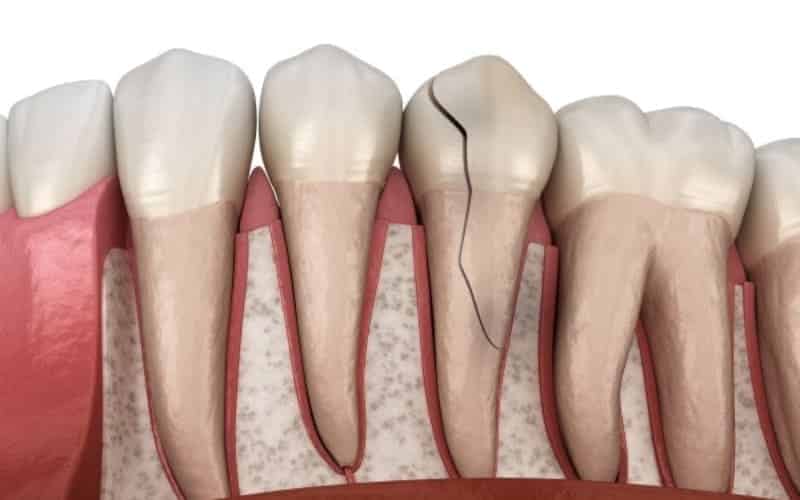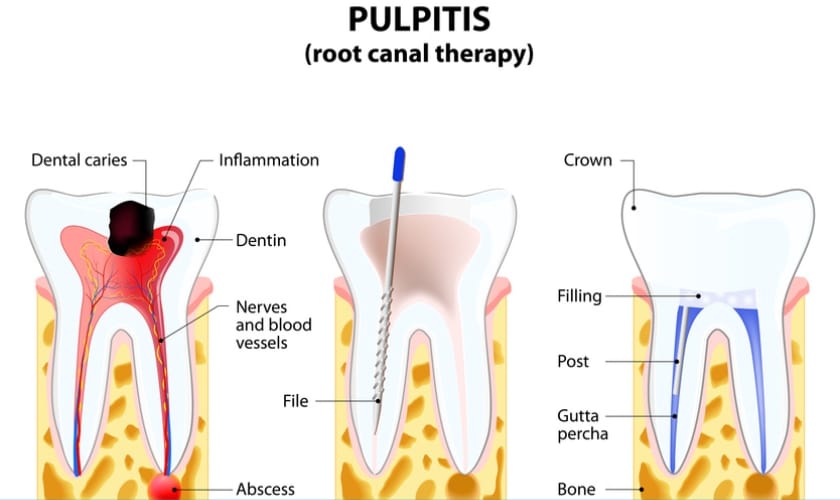
A cracked tooth is more than just a minor inconvenience. When a tooth is cracked, bacteria can enter the inner layers, leading to infections that can spread to other areas of the mouth and body. Additionally, a cracked tooth can cause persistent pain, difficulty chewing, and even tooth loss. Also when left untreated, it can lead to serious complications that impact your oral health and overall well-being. In this blog, we’ll explore what happens when a cracked tooth goes untreated, the potential consequences, and why seeking prompt care is crucial.
Causes of Cracked Teeth
Cracked teeth can result from various factors, including:
1. Physical Trauma: Accidents or sports injuries can cause a tooth to crack.
2. Chewing Hard Foods: Biting down on hard substances like ice or hard candy can lead to cracks.
3. Teeth Grinding (Bruxism): Chronic grinding can weaken teeth over time.
4. Large Fillings or Previous Dental Work: Existing dental work may compromise the tooth’s structure.
5. Natural Wear and Tear: Age and regular use can contribute to cracks.
Symptoms of a Cracked Tooth
Identifying a cracked tooth early can prevent complications. Look out for:
1. Pain When Chewing or Biting: Discomfort may occur when applying pressure on the tooth.
2. Sensitivity to Temperature: The tooth may react to hot or cold foods and drinks.
3. Intermittent Pain: The pain may come and go.
4. Swelling of the Gum: Swelling around the affected tooth is a common sign.
5. Unexplained Discomfort: General discomfort without an apparent cause.
Immediate Risks of an Untreated Cracked Tooth
Leaving a cracked tooth untreated can lead to immediate issues, such as:
1. Increased Pain and Discomfort: The crack can worsen, causing more pain.
2. Difficulty Eating and Drinking: Pain can make eating and drinking challenging.
3. Spread of the Crack: The crack may extend, damaging more of the tooth.
Long-term Consequences of Ignoring a Cracked Tooth
The long-term effects when a cracked tooth goes untreated are more severe:
1. Infection or Abscess Formation: Bacteria can enter the crack, leading to infection or abscesses, which can spread to other teeth and gums.
2. Nerve Damage and Pulp Necrosis: The tooth’s nerve may be damaged, resulting in pulp death.
3. Tooth Loss: Severe damage might necessitate tooth extraction.
4. Impact on Oral Structure and Function: Missing teeth can affect chewing, speaking, and the overall structure of your mouth.
Treatment Options for a Cracked Tooth
Treating a cracked tooth promptly can save it. Treatment options include:
1. Dental Bonding: Minor cracks can be repaired with bonding.
2. Dental Crown: A crown can protect a more extensively cracked tooth.
3. Root Canal Therapy: This may be needed if the crack has reached the pulp.
4. Tooth Extraction: In severe cases, the tooth may need to be removed.
Preventive Measures
Preventing cracked teeth is possible with these measures:
1. Regular Dental Check-ups: Routine visits to the dentist in Pharr can catch issues early.
2. Wearing Mouthguards: Use mouthguards during sports to protect your teeth.
3. Avoiding Hard Foods: Steer clear of hard foods that can crack your teeth.
4. Managing Bruxism: Night guards can help prevent teeth grinding.
5. Maintaining Good Oral Hygiene: Proper oral care keeps your teeth strong and healthy.
Final Words!
Promptly addressing a cracked tooth is crucial to prevent serious complications. If a cracked tooth goes untreated, it can lead to worsening pain and potential infections. By seeking professional care, you can protect your oral health and maintain a beautiful smile. If you’re experiencing symptoms of a cracked tooth, don’t delay! Contact our dentist in Pharr today to schedule an appointment. Our team is here to provide you with personalized care and effective treatment options.




